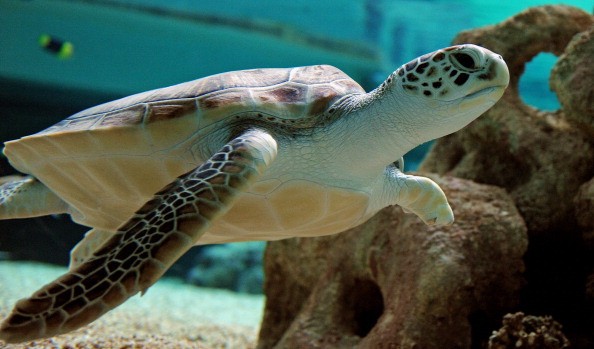A turtle washed up on a UAE beach about a week ago. The coast of mangrove trees which was once waste-free is now littered with piles of trash from surrounding landfills. Dead turtles, plastic bags, packages, bottle caps, are now scattered across the shore.

Plastic Waste Linked to the Death of Turtles
The turtle had eaten shriveled balloons and plastic foam in its final days, so it was obvious that it was to blame for its demise. According to marine expert Fadi Yaghmour, turtles' intestines can become clogged with plastic, which can lead to starvation.
For this study, Yaghmour's group has collected 64 turtles from the coastlines of Kalba and Khor Fakkan, in the greater Sharjah emirate to be studied.
As the use of throwaway plastics has exploded all over the world and in the United Arab Emirates, as well as other marine waste, his team of researchers released a new study in the Marine Pollution Bulletin.
According to Phys.org, throwing away plastic pollutes the rivers and threatens the lives of marine creatures such as sea turtles, as well as other species such as whales, birds, and other creatures of the air and water.
One-third of the dead green turtles and half of the dead loggerhead turtles in Sharjah had eaten plastic bags, bottle caps, rope, and fishing nets, according to the study.
This is a shockingly high percentage. No turtles in the Gulf of Oman had ingested plastic, according to the sole previous study from the region, which was published in 1985.
According to Yaghmour, scientists know the world has a huge problem when the vast majority of sea turtles have plastics in their systems. Turtles need our attention today more than ever before.
Also Read : Hundreds of Dead Sea Turtles Washed Ashore in Mexican Coast, Experts Blame 'Ghost' Fishing Nets
Why Are Green Sea Turtles the Most Affected?
The dinosaur catastrophe may have spared turtles, but today they are being wiped out all across the planet. According to the World Conservation Union, hawksbills and green and loggerhead species are both severely endangered.
The warm, shallow waters of the Persian Gulf and the Gulf of Oman, on the other side of the Strait of Hormuz, are home to all three species.
Litter is piling up at an alarming rate around the world, and a landmark study published in Science Advances five years ago predicted that 12 billion metric tons of litter would accumulate by 2050.
Humans have produced numerous risks to sea turtles, including the bleaching of coral reefs caused by rising sea temperatures, coastal overdevelopment, and overfishing.
The deceased turtles found in Sharjah contained 325 fragments of broken glass, and 32 pieces of fishing net. Blockages, lacerations, and gas can build up in the digestive systems as a result of these materials.
Additionally, the researchers discovered that green sea turtles are more likely to eat floating plastic bags and ropes because they mimic the cuttlefish and jellyfish they normally eat, as per Abc News.
Bottle caps and other small bits of hard plastic were eaten by loggerhead turtles because they were mistaken for delectable sea invertebrates by the turtles. The most plastic was eaten by the younger sea turtles, who were less selective.
Efforts to Save the Turtles
Environmental and Protected Area Authority of Sharjah staff, as well as Yaghmour and his team, are working to save the turtles in the UAE from the threats. Turtles in distress are frequently rescued by community cops, who take them to a rehabilitation facility.
Oil-rich Saudi Arabia is one of the world's biggest carbon dioxide emitters and rubbish producers per capita, making it a difficult challenge for environmentalists.
A rapid transformation from a parched desert pearling village to an ultra-modern corporate metropolis has resulted in a dramatic increase in plastic consumption and trash in the United Arab Emirates.
Much of the expansion has come from carbon-intensive desalination, which has a high carbon footprint. An environmental study from a decade ago found that Dubai's massive artificial islands had dug up sediment which had wiped out the natural reef and turtle nesting areas along the coast.
The UAE vowed last October to have net zero carbon emissions by 2050, the first country among the oil-rich sheikhdoms to make the long-term commitment. The goal remains difficult to evaluate and has encountered skepticism.
Related Article : Sea Turtles Threatened By Plastic Pollution, Researchers Say
For more news, updates about turtles and similar topics don't forget to follow Nature World News!
© 2025 NatureWorldNews.com All rights reserved. Do not reproduce without permission.





